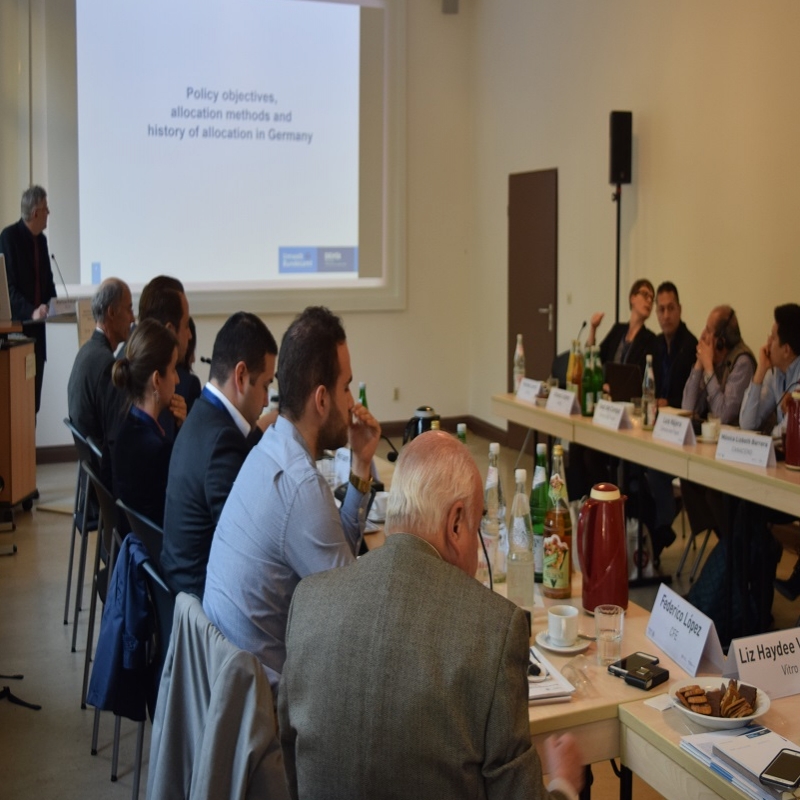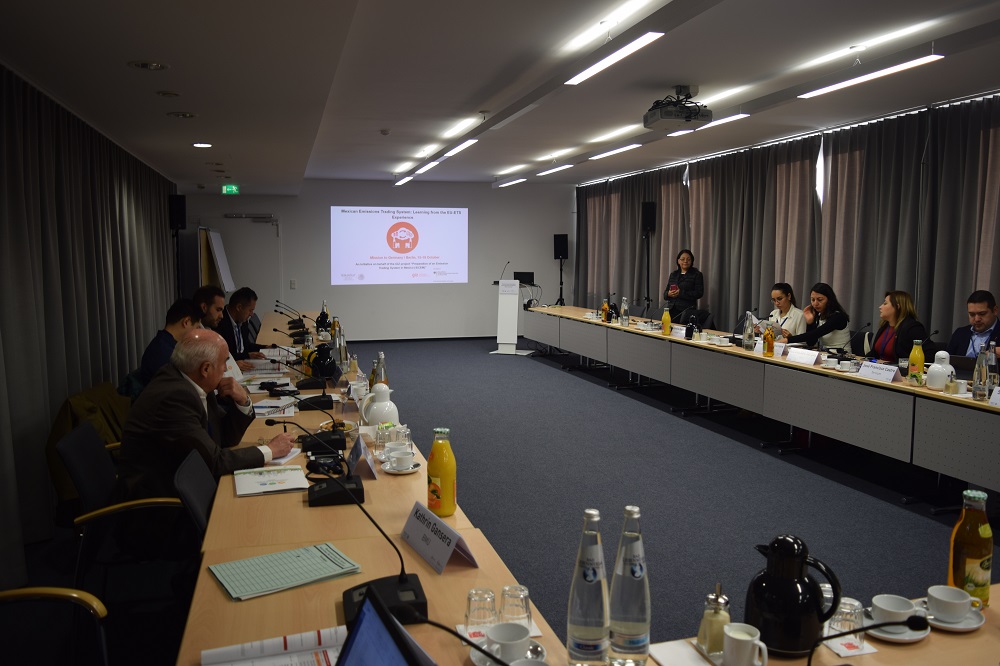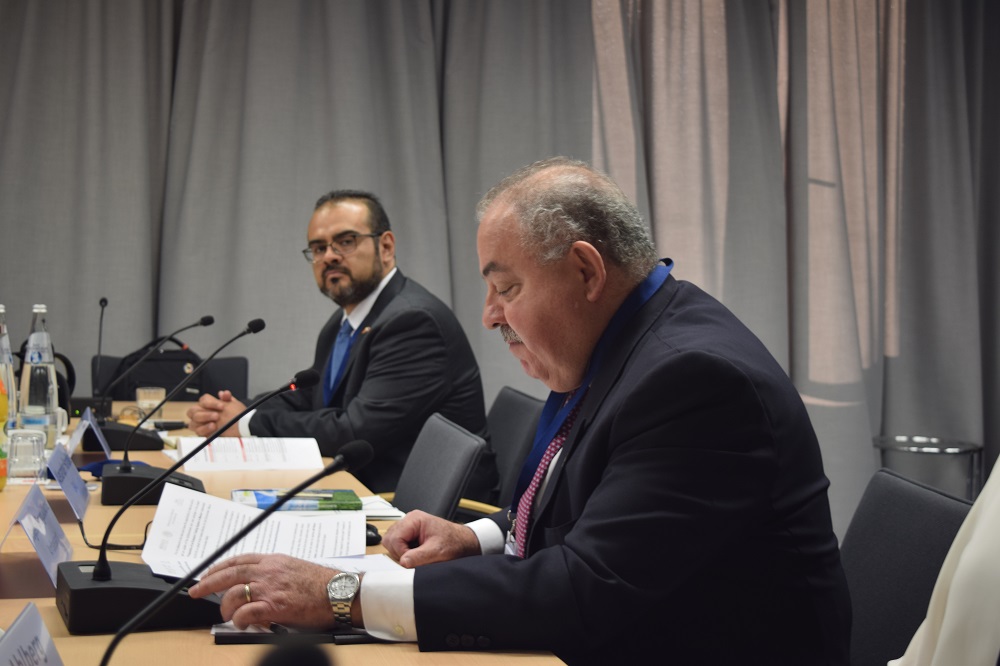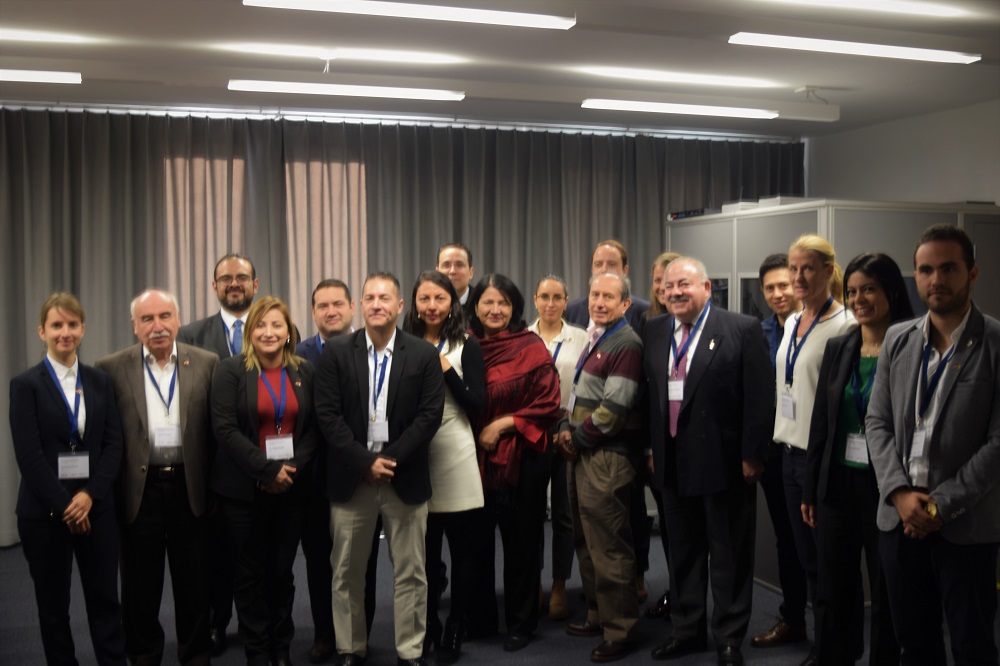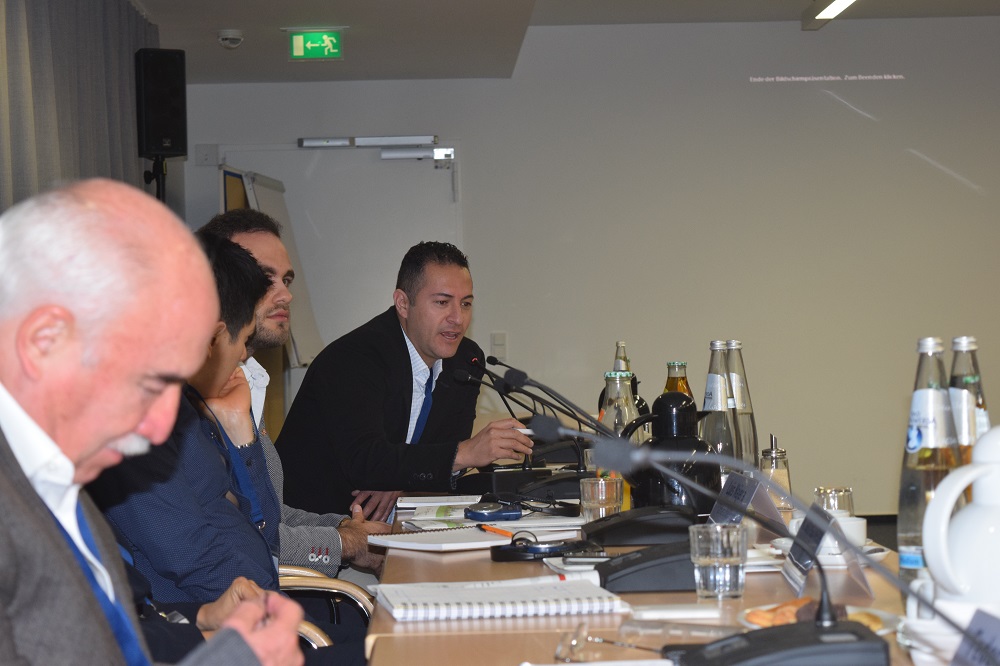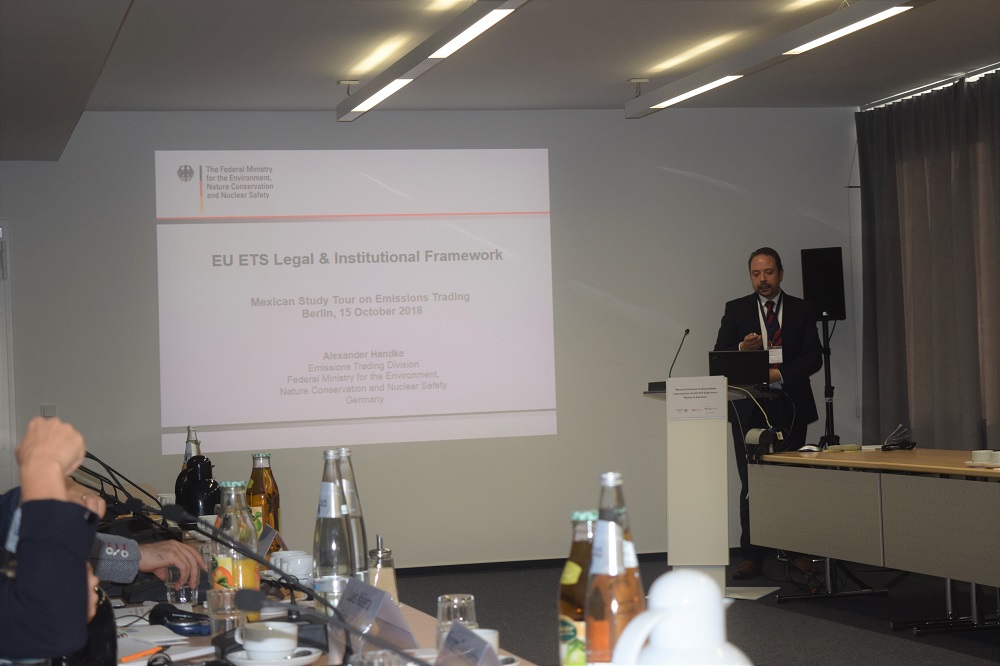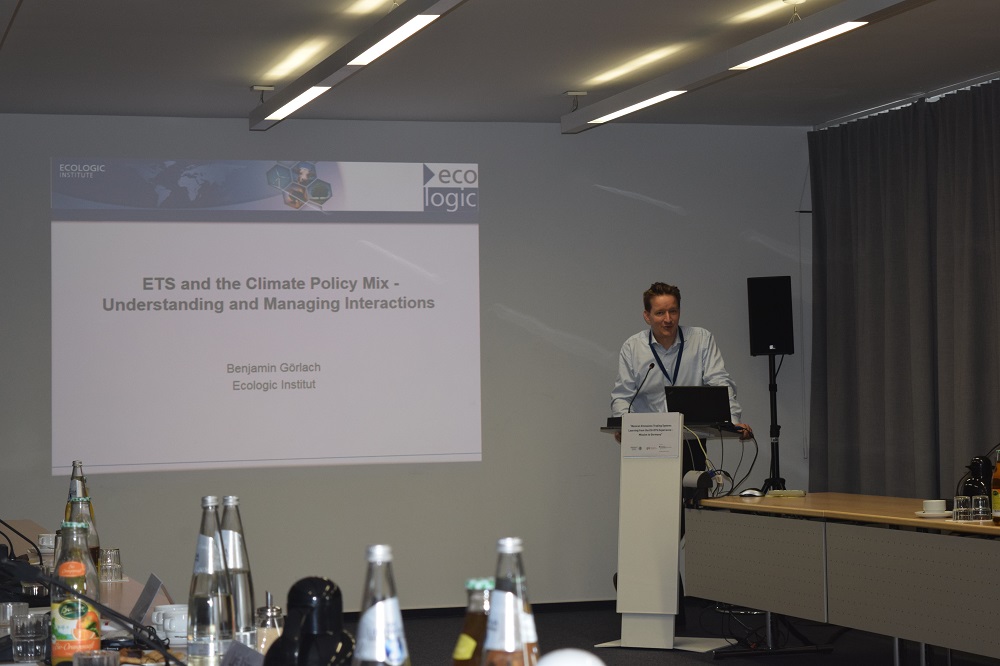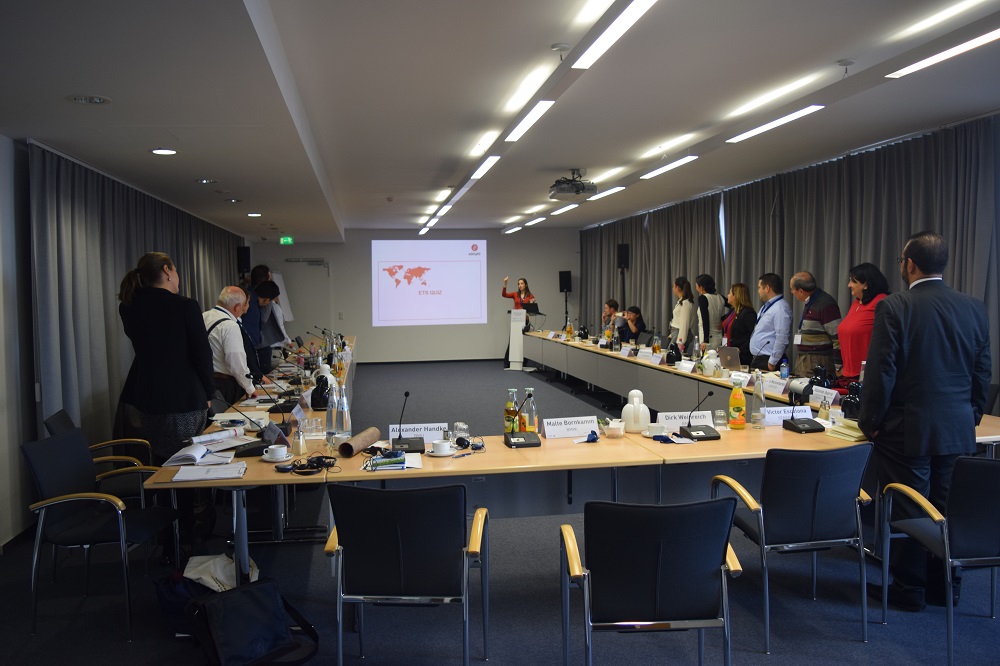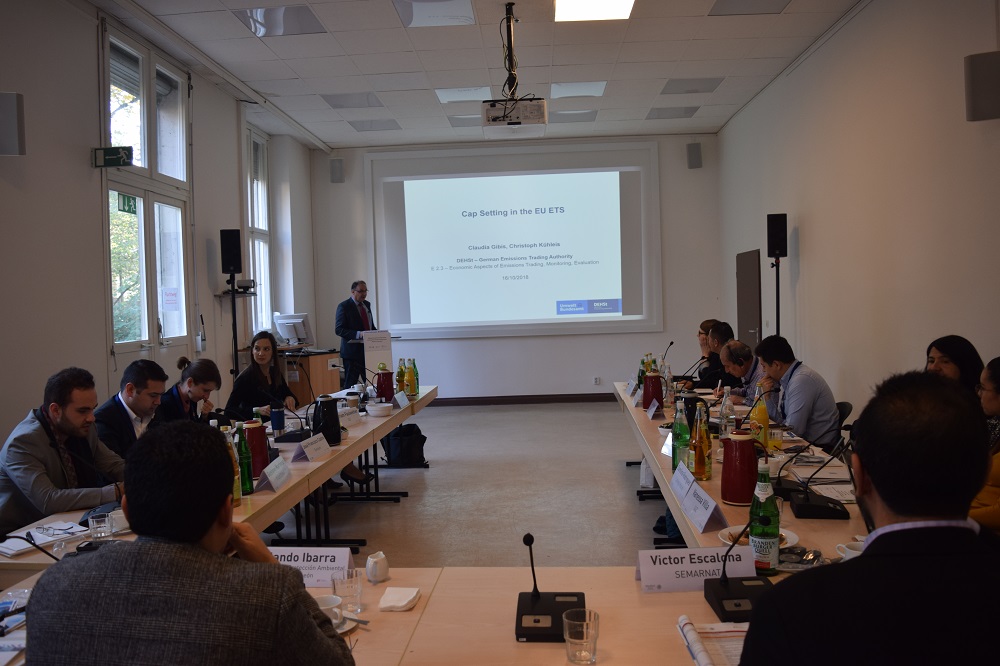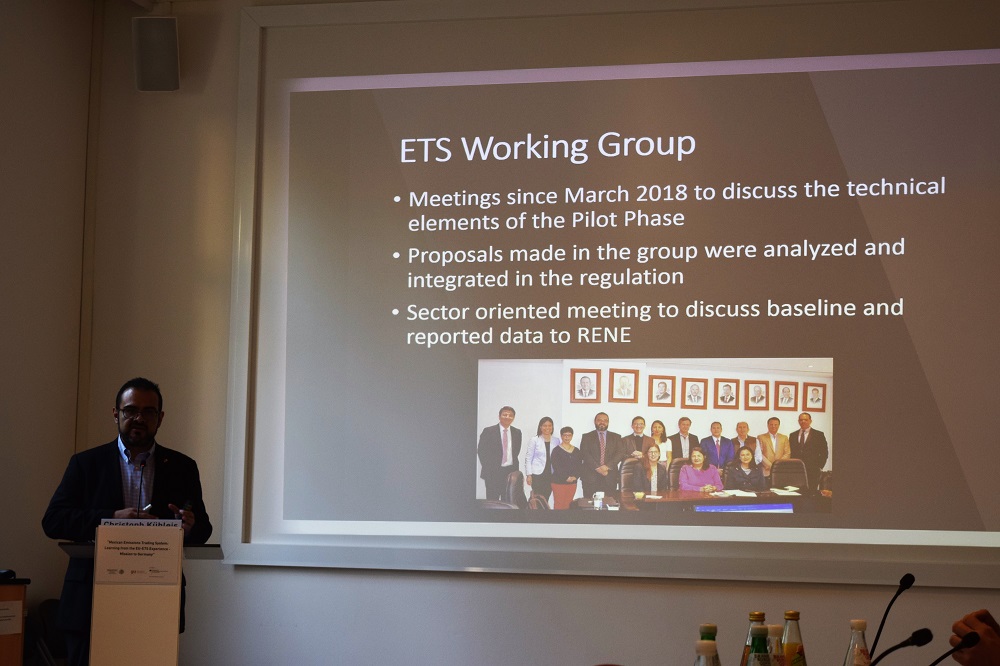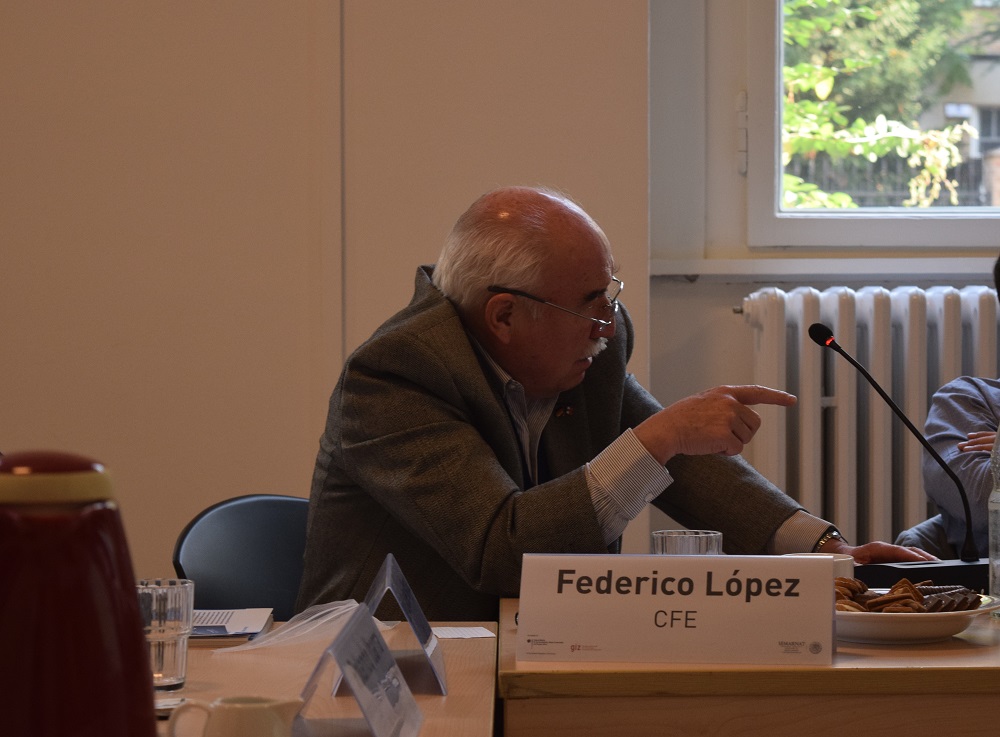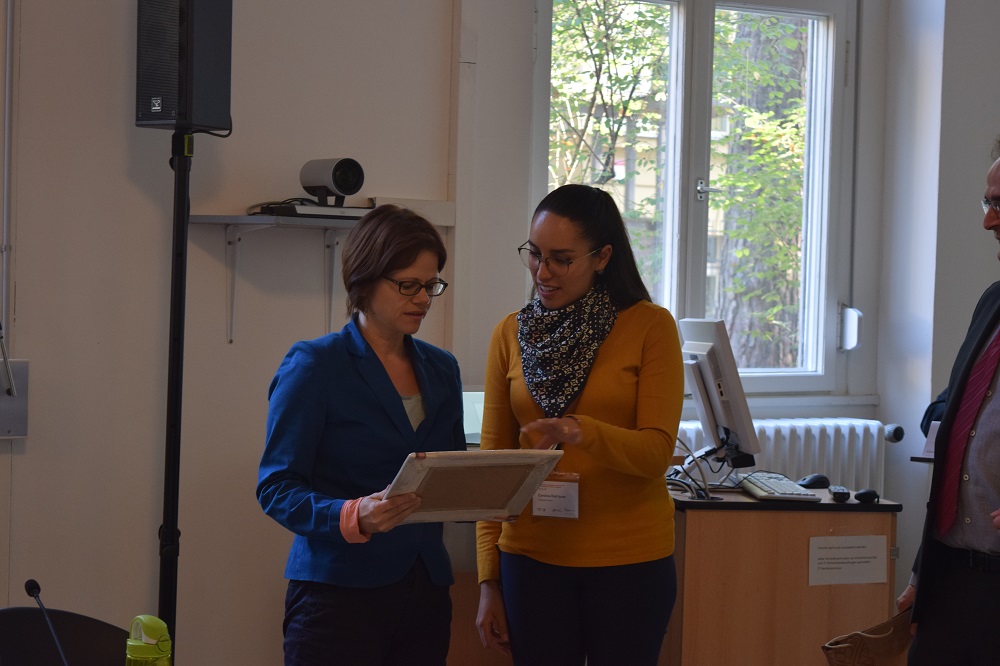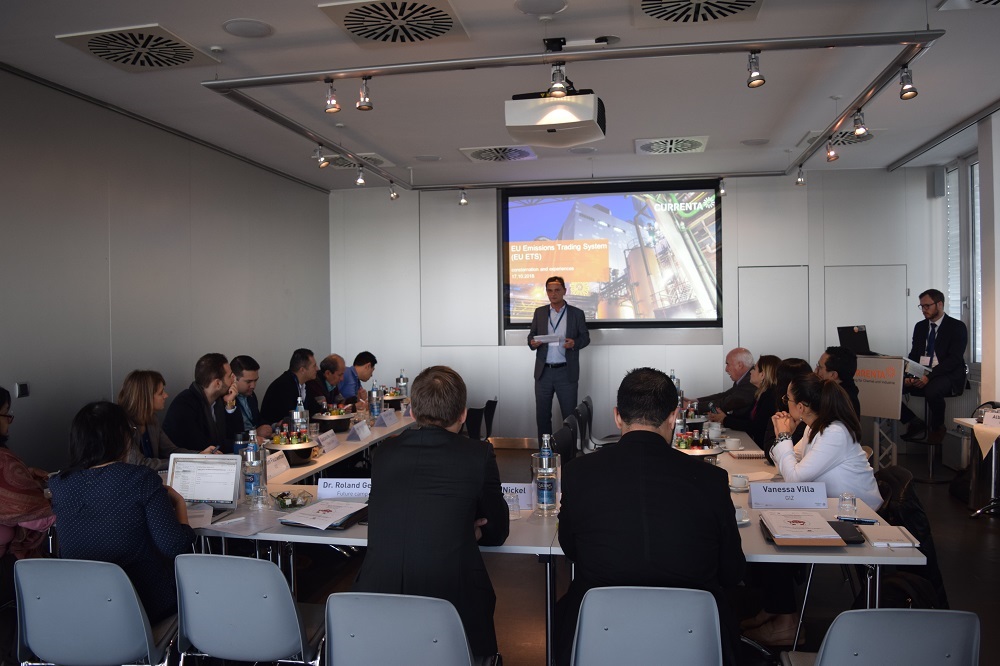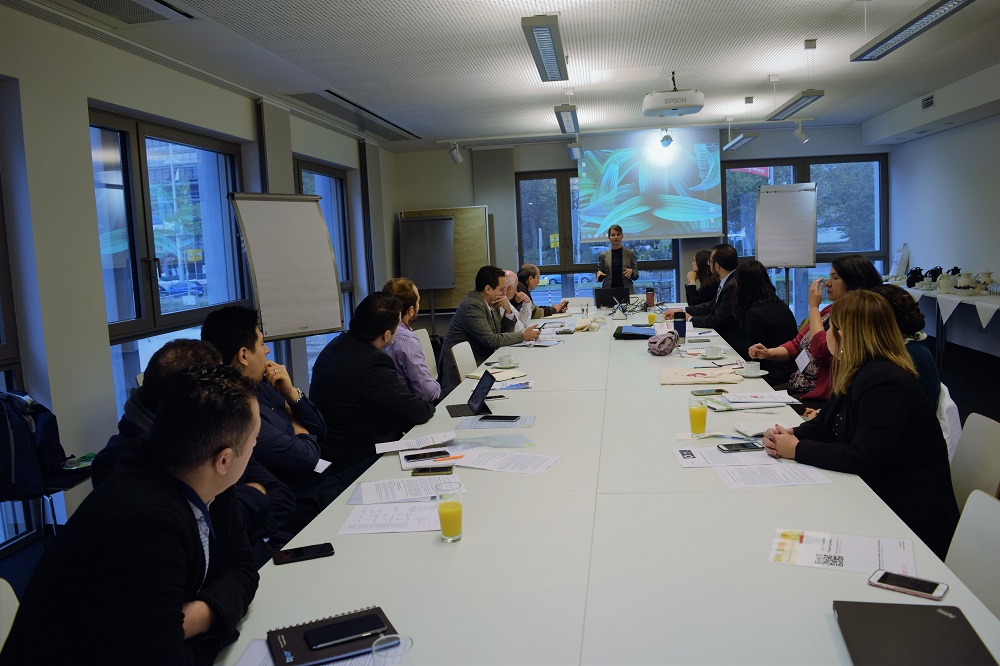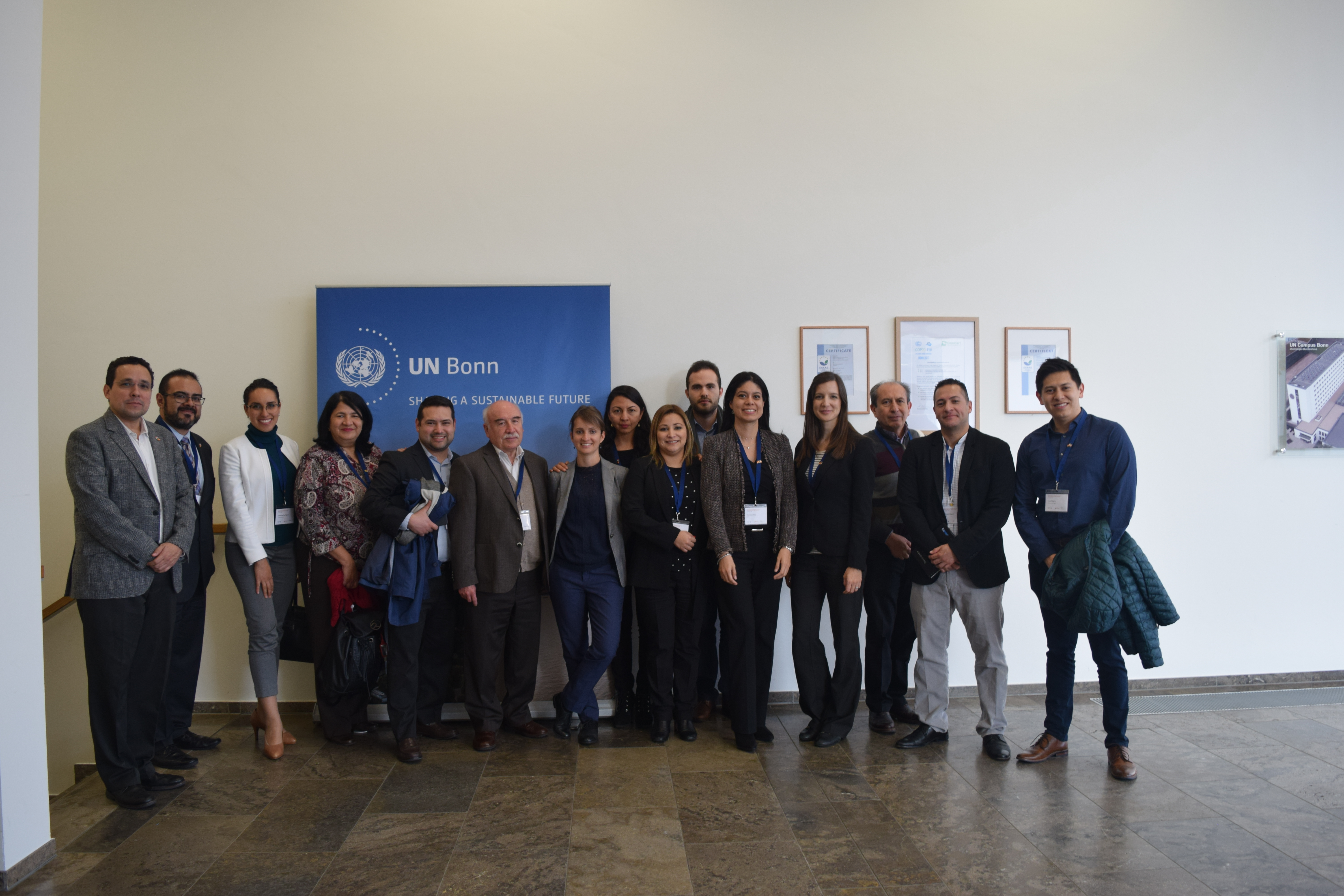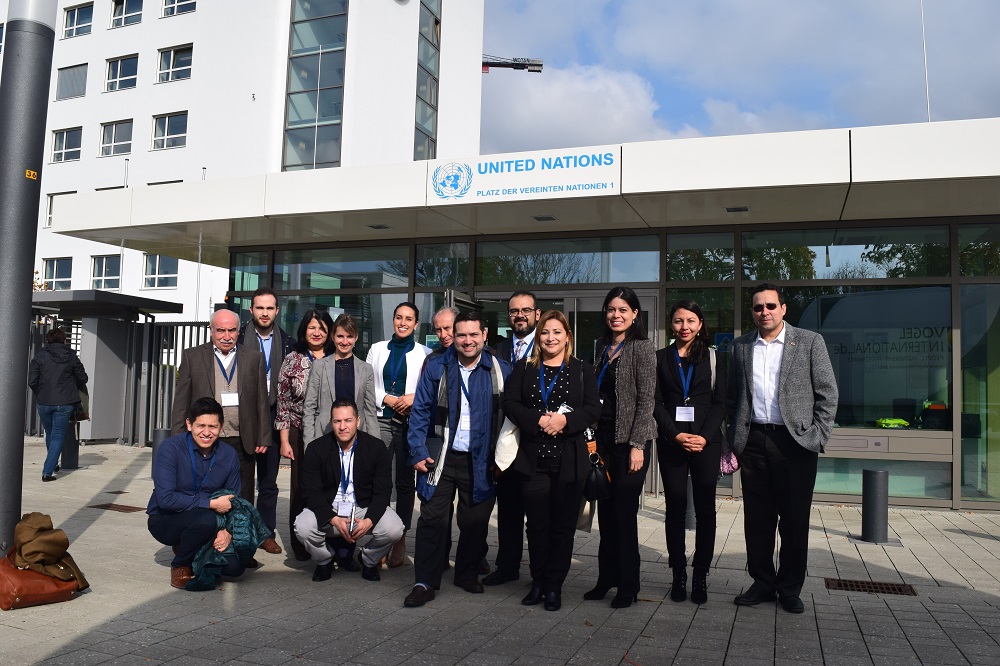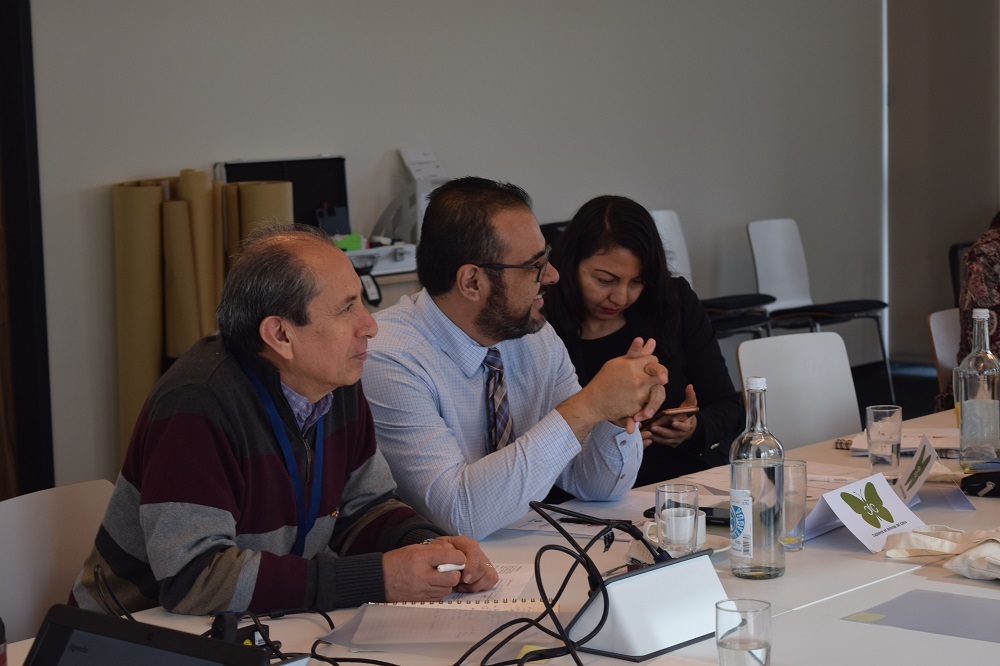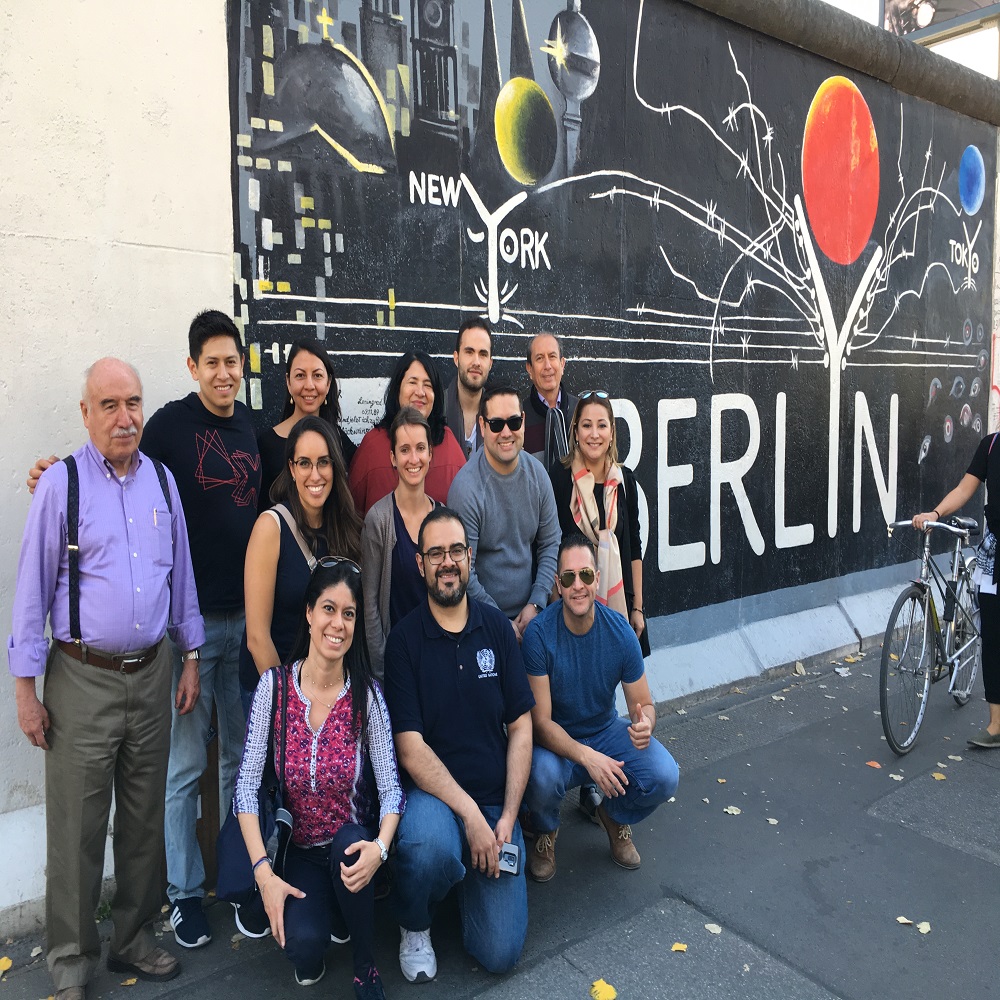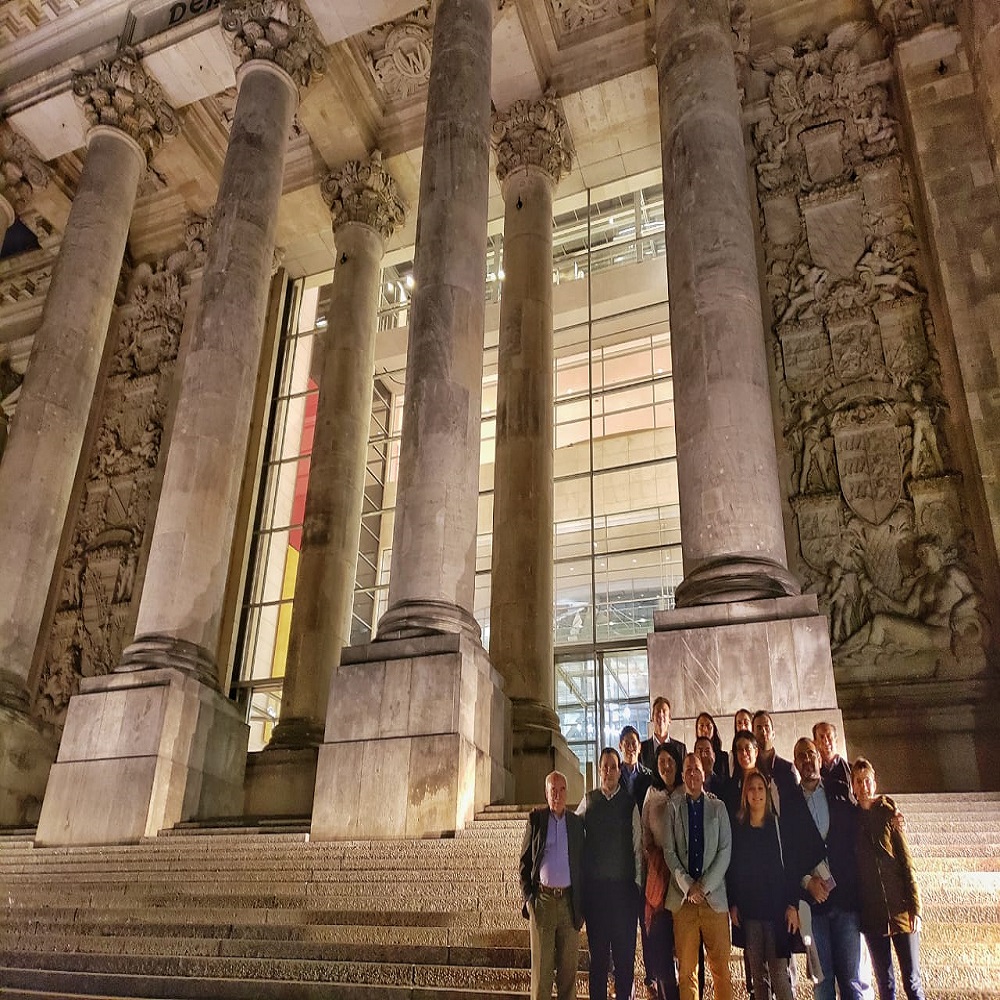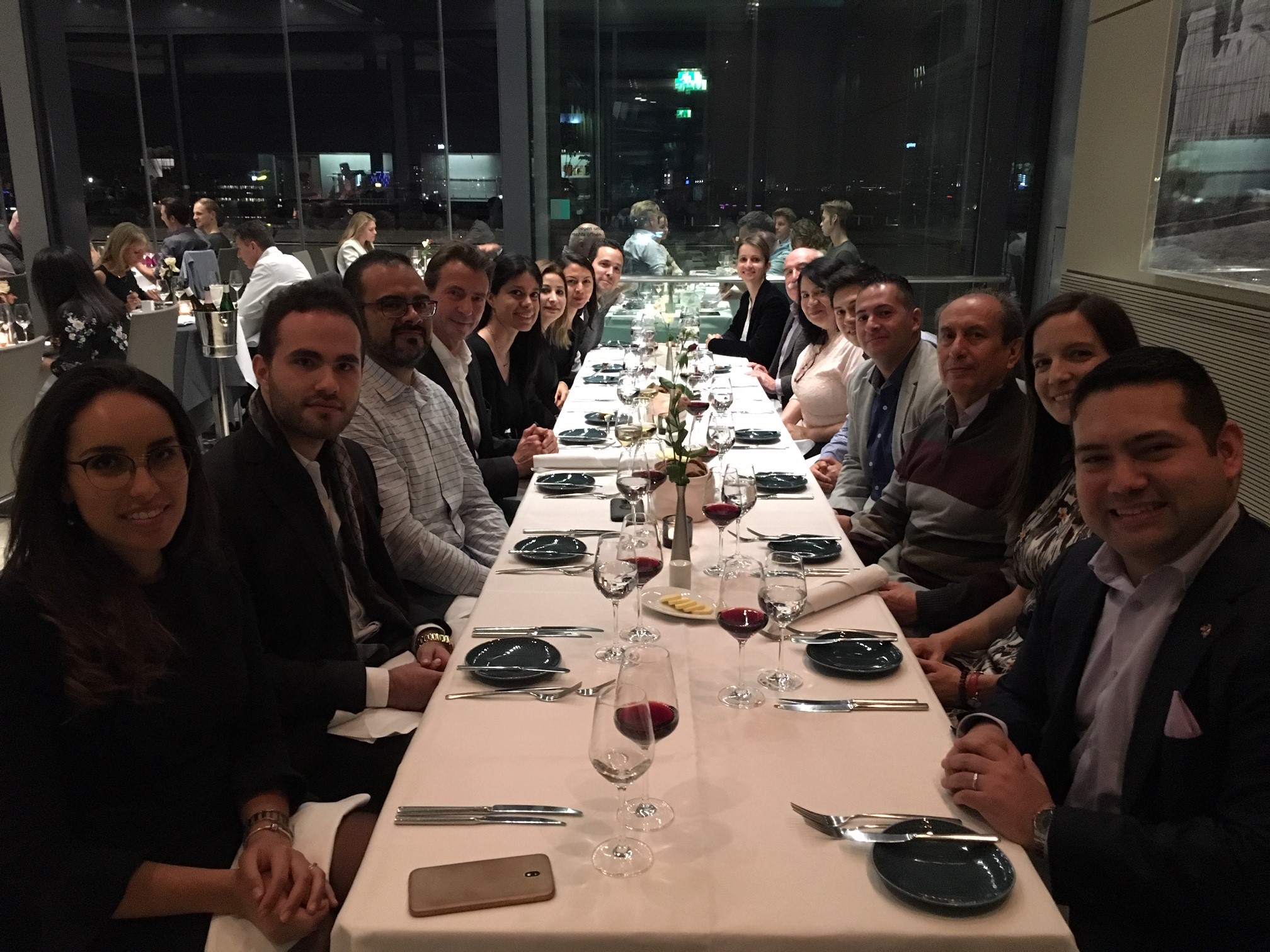As part of the launch of the Emission Trading System (ETS) pilot program in Mexico, a study trip was organized to Germany. The objective was for private sector representatives to learn about Europe’s experience with ETS implementation, and to gain first-hand knowledge of the lessons learned, challenges and opportunities associated with implementation.
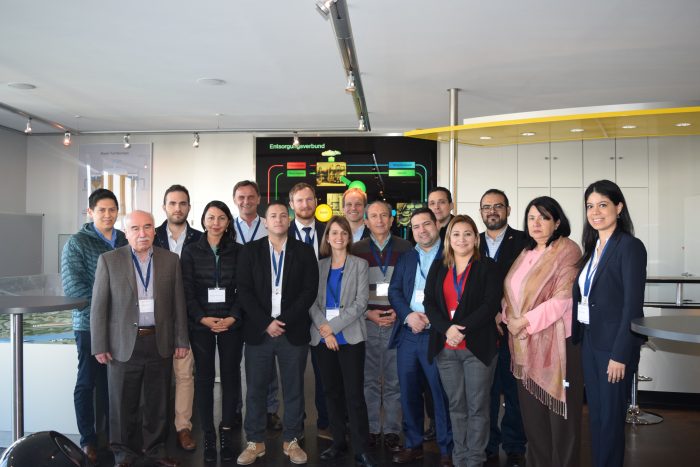
Representatives from the Mexican industrial and electricity sectors participated in sessions with experts directly involved in the implementation of the EU ETS. Throughout the study trip, they engaged in bilateral conversations, participated in group discussions, received the latest status updates about the ETS design in Mexico and discussed the Mexican industrial sector’s involvement in the development of the ETS.
The public and private sector institutions visited during the trip offered their perspectives about the implementation of the EU ETS. The Federal Ministry for the Environment, Nature Conservation and Nuclear Safety (BMU) and the German Emissions Trading Authority (DEHSt) discussed lessons learned from the implementation of an ETS at the European and German levels. In addition, the Secretariat of the United Nations Framework Convention on Climate Change (UNFCCC) talked about the international context for carbon markets and its relevance for Mexico.
The political and regulatory elements were highlighted in a visit to Leverkusen to see the Currenta chemical plant, a subsidiary of the Bayer company. A panel discussion was held with the participation of the companies Currenta, Covestro AG, ThyssenKrupp Steel AG, Pfeiffer & Langen and Uniper SE, representing the electricity, steel, chemical and food sectors. In addition to meetings with representatives of these institutions, experts participated from the European Energy Exchange, the Federal Ministry for Economic Affairs and Energy (BMWi) and the International Carbon Action Partnership (ICAP).
The trip’s program was designed to cover issues relevant to Mexico’s private sector representatives, as part of the preparatory process that has taken place over the last several months for the ETS and for the future launch of the pilot program announced in the recent modifications to the General Law on Climate Change. Among the topics included were the legal and institutional framework of the EU ETS and its implementation in Germany, strategies for involving the private sector, the operation of auctions, the establishment of emissions caps in the EU ETS, guidelines for the distribution of emission allowances and relevant aspects about monitoring, reporting and verification (MRV). In addition, German private sector representatives presented the measures taken by their businesses to participate in the EU ETS. The last day closed with sessions about compensation issues, and the link between the ETSs and international markets under the Paris Agreement, focusing especially on Article 6. The sessions addressed concerns regarding competitiveness and carbon leakage, methodologies for the distribution of emission allowances, information required for the launch of a pilot program and emission reduction analysis associated with the ETS.
The trip was carried out from October 15 to 19, 2018 with the participation of a Mexican delegation of 14 individuals. Among the industrial sectors represented were the steel, cement, paper, chemical and glass sectors, with representatives from the Ministry of the Environment and Natural Resources (SEMARNAT) and the Federal Electricity Commission (CFE) also attending. The trip was organized within the framework of the Preparation of an Emissions Trading System in Mexico (SiCEM) project developed by the Deutsche Gesellschaft für Internationale Zusammenarbeit (GIZ) GmbH on behalf of the German Government in support of SEMARNAT. This trip contributes to the project’s capacity building component, with new activities expected to be developed.
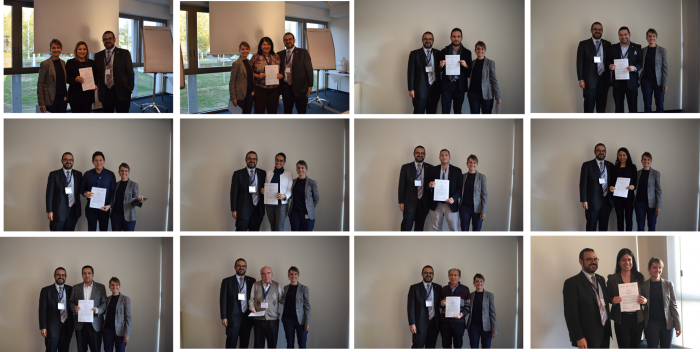
For more information on this subject, please contact us at: comercio.emisiones-MX [at] giz.de


